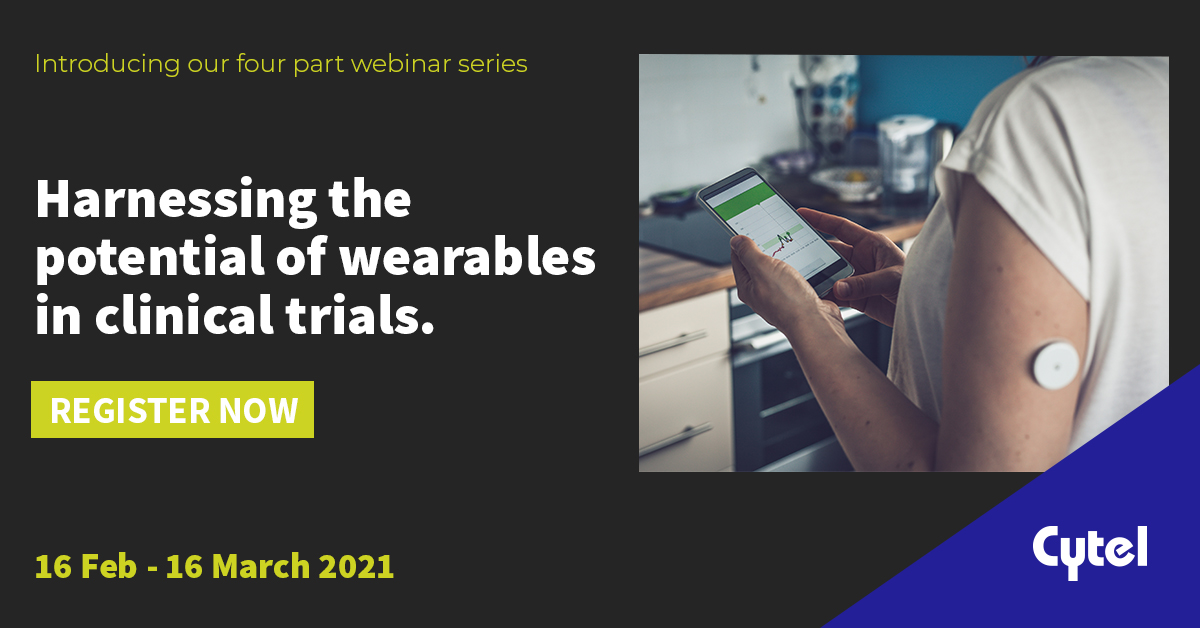The convergence of several distinct trends has made wearables an increasingly attractive option for use in confirmatory clinical trials. A number of considerations arise, though, when sponsors choose this route, from how to construct clinically meaningful digital biomarkers, to how to determine the quality of the data they collect.
A recent Cytel webinar illustrated how wearables have been used in Parkinson’s disease, as well as in studies where actigraphy became a vital endpoint. Here are three considerations for utilizing wearables in clinical studies that emerged during this study.
New Clinically Meaningful Endpoints
By capturing data continuously, wearables are able to provide much more sensitive measurements for clinical studies, as well as capture rare events which are unlikely to occur during routine clinical visits. Parkinson’s patients, for example, often experience freezing and falling, which have traditionally been reported to clinicians. The use of wearables allows data to be collected in real time, while capturing nuance that could not be captured during a visit to a clinic.
Wearables and Patient Focused Outcomes
Wearables also facilitate the growing demand for Patient Focused Drug Development (PFDD). The FDA has recently begun accepting Physical Activity (PA) measured via an actigraphy device as an outcome measurement for some clinical trials. For treatments where PA is the most relevant measurement for patients, this has enabled better PFDD. As well as helping ensure drugs are designed with patients’ needs in mind, the use of wearables in these clinical studies has brought other benefits. Because they directly and objectively measure outcomes, the data they produce can be far superior than the often subjective measurements normally taken during clinical visits, such as Patient Reported Outcomes (PROs), and 6 minute walk distances.
Wearables and COVID-19
Another trend which is promoting the consideration of wearables for confirmatory clinical trials has been the COVID-19 pandemic which has encouraged trial design which limits the use of clinical visits to a minimum.
As the pandemic recedes these restrictions may lift, but the increased awareness of wearables as a source of non-invasive data collection may mean that clinical visits may remain less central to clinical trial design in future.
Wassim Fares, the Vice-President of Medical Affairs Strategy at Acceleron Pharma, and Peter Fernandes, the Vice President & Chief Regulatory, Quality & Safety Officer at Bellerophon Therapeutics, recently presented a webinar on the Use of Wearables in Confirmatory Clinical Trials, moderated by Vice President of Strategic Consulting at Cytel, Natalia Muhlemann.
Click below to watch the webinar.




